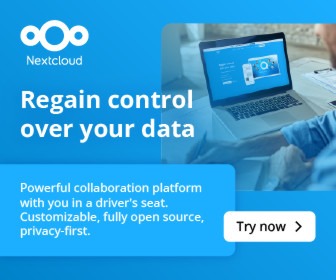Editor’s note: Be sure to check our home page tomorrow morning for a special bonus column by Ken Starks.
Is it Tuesday already?
I don’t think most of you know just how much I enjoy talking to you every Tuesday. See…I don’t think of this as an article. This is my way of starting a conversation with my friends. There are times when I write a particular sentence, knowing that someone reading it is the only person other than me who knows what I am talking about. There’s a certain inner-warmth in being able to write like that. Whether it be to just one person or to everyone.
 It’s nice to envision the faces of those I am talking to as I write. I think that drives my personal style of writing. I’ve been told that it could be worse.
It’s nice to envision the faces of those I am talking to as I write. I think that drives my personal style of writing. I’ve been told that it could be worse.
Speaking of worse…
Two weeks ago I signed off with a promise to get back to you on a series of articles I am writing, outlining the process of getting an easy-to-use FOSS application written in the realm of text to speech. And yeah, I most certainly am going to pick that subject up again now…just not the way I’d planned.
To me, software code is Voodoo. With me, the disconnect is complete. How those ones and zeros, mixed in with an abundance of squiggly characters, get dumped into the magician’s hat and spill out into something that makes my life easier when I sit down at a computer is beyond me.
Truthfully, I’d be fairly easy to dupe… $24.00 worth of beads and all that.
Over the years, I’ve noted that the people who make that magic happen almost always tend to be of a certain personality type. Now I will tell you this one more time: A four year degree in psychology presents you with just enough education to prove that you that you don’t have enough education to gain the level of employment which will provide enough income for to pay your student loans, or discuss personality types with anything that approaches authority. That being the case, I’ll not pretend to know what I am talking about when it comes to identifying specific personality types.
It started out fairly good.
On a posting on my Google+ account I was talking with a fellow about some of the challenges specifically found in creating a text to speech app. “Aha!” I said to myself. “This is the guy I need to speak with.” And so it did go. I probably learned more about writing TTS applications, and the perils, during those few hours than I had known before.
Then he read my article here on FOSS Force addressing the horrible state of TTS applications in the Linuxsphere.
From his email response, you would have guessed I had back-handedly slapped Shirley Temple — lollipop and all.
Folks, I’m not talking about a stern communication. I’m talkin’ finger-poking-into-my-chest-slathering-frothing-yelling-losing-all-composure pissed off. He more than adequately suggested: How Dare Me! If I don’t write or understand software programming or the brilliance required to do so, then I don’t get a pass on judging what needs to be done, how it should be done, when it should be done, and finally, to what quality I might accept as usable.
 It would seem that I may have ever-so-slightly brushed against a nerve.
It would seem that I may have ever-so-slightly brushed against a nerve.
After a couple of days, he returned via my Gmail inbox to further expound on his last input. Apparently, anyone who believes that a particular software isn’t up to snuff should gain education enough to fork the program. No, really…he truly believes in his heart of hearts that statement to be true. I think it would be safe to scratch his name off any future collaboration lists. Of any type. All of them.
If I wanted to bait him, I would kindly refer him to any given bug report list and ask him if these people did not share his belief in forking. Why submit a problem ticket? Just fork the application and make it your own. I kind of feel bad for the guy…getting so tightly spun about over something this trivial. I mean, in the scope of all things, it is trivial. It’s obvious he took something in my last article personally.
Here’s why I’m even bothering to write this: I’m writing to the person who is considering Linux as a desktop system. I am writing to the kid who wants to explore computer programming. I’m writing to the person who is intrigued with the look and feel of Linux on the desktop.
Should you run into this kind of person while you are asking for help or even offering to help others, just write him off as someone who had an extremely bad day and move along. He is most certainly an anomaly within the global Free Software community…within the Linux community.
And to the person I’m talking about: Should you ever respond to anyone in a public forum or community in the same manner as you did with me, you should be thrown out on your ear with the door slammed behind you with authority. You represent everything that is wrong in a free software environment. So let your IDE be your sword, not your inferiority complex.
I do want to end on a positive note.
Next Tuesday, we will feature an interview with Mr. Neil Munro, a software engineer in the UK. He’s working with a loose group of us who intend to make text to speech a working and easily acquired tool to meet our day to day needs. He’s already began work on a Chrome browser extension that I am using daily. I’ve already covered the many problems, some seemingly insurmountable, to be found in the text to speech tools within the Linuxsphere. And, ahem, in some of the developer communities it would seem.
Those who create and maintain software within the Linuxsphere have a great responsibility to their users. And you don’t have to give your work away. I am happy to pay for good software that meets my needs. But we count on your application to work as intended. And to the majority of the people who write software to help me in my day to day job…
Thank you.
The time has come for FOSS Force to grow and offer expanded coverage of free and open source software and free tech. For this reason, we have declared the month of May to be “Pledge Month” on FOSS Force and have launched a fundraising campaign on Indiegogo. You can get all of the details on our campaign page.
Ken Starks is the founder of the Helios Project and Reglue, which for 20 years provided refurbished older computers running Linux to disadvantaged school kids, as well as providing digital help for senior citizens, in the Austin, Texas area. He was a columnist for FOSS Force from 2013-2016, and remains part of our family. Follow him on Twitter: @Reglue








Ken: You seem like a really nice, well intentioned guy. That niceness seems to mislead you. I’m glad an insider wrote that kind of article, but you blew it. You missed the larger significance of your encounter. You personalized it because being a nice guy you can’t believe it could have larger dimensions.
Perhaps you are less typical than your friend/nemesis is. Just a thought.
I have nibbled at Linux for years. I checked out Ubuntu several times. I always am forced to retreat and reluctantly return to Windows, with all its flaws. It’s backwards I know, but Windows sells to customers. Linux is a toy for geeks. Even though I’m a programmer, I’m not on Linux’s invitee list. It shouldn’t be that way. I keep waiting for the penny to drop but it doesn’t. Like you, I don’t want to learn enough to fork a distribution. I just want to use software.
Ahh yes, and we have a shining example of the #1 reason I walked away from FOSS. Sorry this crap happened to you Larry.
@Andrew
That seems silly. Do you think there are no proprietary developers with bad attitudes? I’ve met many.
The truth is, there are people with bad attitudes from all walks of life, and that includes FOSS. There is no special lesson to take away from that knowledge.
FOSS is built because there are people harboring good will towards others. It wouldn’t exist otherwise.
But coders are technical people immersed in a very specialized world and they don’t always react in the ways non-technical people expect. That’s no excuse for bad behavior, but it certainly can be frustrating when someone criticizes your very hard work while having no idea how any of it works, or how hard it is to do what they’re asking. As usual, xckd hits the nail on the head – https://xkcd.com/1425/
@Mike, yeah, sure, it seems silly…until that’s all you encounter and you eventually tire of it and decide it’s not worth the trouble to do something for others for free when all you receive in return is a hard time from those you’re trying to work with / get help from. You’re right, there are people with bad attitudes from all walks of life, but when you are volunteering your time you don’t have to and shouldn’t have to deal with it.
Ah yes, it is ugly when people get offended and launch an excessive counter-attack without taking the time to cool down and get all the facts first.
It’s difficult to do any kind of volunteer work without running into people with bad attitudes. Entitlement is a big one. A lot of people quickly take things for granted rather than continuing to appreciate them. There are also a lot of people who do continue to appreciate volunteer work, or at least only need small reminders. Of course, when it’s over the Internet, you have ignore lists as an available resource.
Bad attitude in the open source world has been around since the early days of it. That’s probably because of the idea of the “Unix Wizard” as being the ideal Unix user because it can deal directly with issues. However, that ideal does not fly when you have to deal with “actual users” that are not technically savvy. That rubs the wrong way a certain kind of developers in which they have no time or inclination to attend those issues and rather work with interesting challenges.
Keep in mind that many of the Open Source software is developed by a small teams, most that just want to get their software working and may not have time (or inclination) for hand holding. Hence they need to be rather inflexible on how to handle code issues for sake of efficiency.
Going through your article, it seems that he might have interpreted your G+ post wrongly. The person might have interpreted that you were putting them to shame rather than posting a bug report. They might have a documented bug report process, for example, using the Git Hub reporting facility if they are using it for code management, hence, they would have expected it to be documented there.
In the commercial world, things are not better, it is just that companies manage the issue by having a technical support staff that is trained to be “nice to people” while handling customer issues, while those that prefer to deal with “interesting issues” are working in the back end, “far away” from the customer.
Bad attitude? What a surprise Ken. :/
I’m afraid people like Linus Torvalds have become role models: http://i.imgur.com/MbdmNRo.png
And, using the Internet, for many, confers a lack of personal accountability.
Add to that ‘cliques’ and you have a brew pot of boiling pompous, arrogant. mean-spiritedness.
Using the Internet does come with personal accountability, responsibility, much as does driving a two-ton car.
Maybe we all need to get an Internet Drivers License? Then accountability will kick in.
Politeness doesn’t cost anything.
Rise above it Ken.
Kindest Regards — Dietrich
I just read that article you talked about.
This developer was a jerk. He had no business acting like that when you didn’t call him out specifically. You were simply reporting what you found. You specifically said it isn’t the developers’ fault, but rather what they are forced to work with, or perhaps more accurately, prevented from working with. You’re correct to write him off your list.
–SYG
That developer was probably a junior coder of some sort. I worked in programming and systems analysis since the late 60’s up to 2 years ago. The one thing proper developers do is listen to the needs of the end user since that is the whole point of development. Any of my fellow workers who acted like this would be out the door pronto. And a proper developer does not yell or finger point in the chest or curse – that is the reaction of a junior coder at best, not a professional. And remember programming/software is nothing but a clerical job that anyone can do given perseverance, and a bit of intelligence. I did it for 45 years and do not think it is anything special. In fact I’m grateful I had a well paying career for so long for basically playing with all kinds of computers from mainframes to midsize to micro computers.
“The one thing proper developers do is listen to the needs of the end user since that is the whole point of development.”
This is the crux of the matter.
“Non-proper” developers are only writing code to make themselves feel good and to display how good they are at writing code, or just to pay the bills.
If people find the software presents too many difficulties because of a poor interface, too many bugs, inappropriate features, or lacking in capabilities, then they will not use it and the software project is a futile effort.
Proper developers will take time to listen and be thankful that people are interested in their software and will welcome constructive criticism to make their software better for everybody.
“programming/software is nothing but a clerical job that anyone can do given perseverance, and a bit of intelligence”
Perhaps anyone can do it, but only a few have the determination to persevere and to take the time to do it well.
“FOSS is built because there are people harboring good will towards others.”
That’s only one among many motivations. Many people write or contribute to open source because it seems like the most effective way to scratch their very own itch. No good will is required. Ego gratification and career enhancement have long been factors as well. Increasingly, people work on open source because that’s what their employer has chosen to use (for whatever reason), and would be just as happy working on something proprietary. I’m not saying good will doesn’t exist. I myself am glad that I can contribute to a healthy software commons/ecosystem. However, it’s far from universal and certainly not a requirement. Many open-source programmers really do have little good will toward anyone. They’re *unceasingly* rude to everyone around them, and don’t deserve to have people like us making excuses for them.
Big Joe,
Though I may agree with you mostly, I definitely don’t agree with your comment that “programming/software is nothing but a clerical job that anyone can do given perseverance, and a bit of intelligence”. To do it well, requires a particular mindset and ability that are actually quite rare. Even though very simple programming can be done by many people, to do many programming tasks requires an insight that is not there in many people. This is my observation after 30 years in the business. It is one of the reasons I dread code written by a subject matter experts, it is usually a mess and has a lot of fatal (as in correctness) errors in coding. It also usually means a complete rebuild to get it up to standard.
When people ask me about them becoming a programmer, I generally ask a number of questions. If I don’t get the “right” kind of answers, I will direct them to look at other fields as they do not have what I consider the necessary internals for handling programming.
I agree that talking with and understanding the needs of the user is of paramount importance – if they find it difficult to use or it doesn’t fulfill a need then it is essentially a failure. It is also our responsibility to hide the difficulties of implementation from them unless it has major impacts on development time. However, it is also our responsibility to say no when the occasion warrants it. This last bit tends to be overused by developers a lot (more due to laziness than anything else) but it has its place.
> “programming/software is nothing but a clerical job that anyone can do”
Maybe for mediocre cube-farm developers working from a spec, but to design and build anything special requires a mindset far fewer possess.
i don’t want to defend the reaction of the developer but i would like to point out a few observations:
being criticized hurts!
and while that does not excuse lashing out at anyone, we do need to consider potential reactions. the worst (besides lashing out) is when it makes developers retreat and stop working.
i have seen a few cases where this happened. in one case the developer retreated and his friends formed a protective circle around him, to keep him from having to deal with any criticism.
in other cases people just disappear.
even me, i am an active contributor to FOSS projects and an advocate for Free Software, but i am shy to publish my own projects (which i have written from scratch) because i am afraid of having to deal with users. i am afraid that i may not have the resources to deal with any feedback, and much less to deal with criticism. of course, it might happen that noone cares, but if the choice to be ignored or have to deal with feedback i can’t handle, then why bother? but i digress…
of course this developers reaction is also a (bad) form of criticism, and it hurts ken just as much. it goes both ways.
we need to find ways to communicate that are uplifting and positive. that is not easy. i don’t know how kens original article could have been written better/nicer. but this is something we need to look for in our communication.
greetings, eMBee.
To eMBee,
Sure criticism can hurt. However, you’ve got things back to front. The attitude should be – here this may help, if you like use it, if you don’t then don’t, if you want to provide feedback to improve it, please do so. It isn’t perfect but it does the task for me.
This kind of attitude will get your work out there and will also get out the fact that you are willing to share and positive criticisms will be looked at for improving the system. You can always ignore the negative (by negative I mean those that provide no useful information about improving your system).
But even here, negative criticism can be used to highlight what is wrong and what needs to be done. I’ve even used such comments as “this is a piece of garbage” to open the conversation as to what is causing a problem for the end user to the benefit of them and others using the system, as well as enhancing my reputation for solving their specific problems.
I have even received gifts from end user family members for solving specific problems in which the conversation started with “this is a piece of junk”. At the time, my wife thought it was a real delight.
Ken,
You’re tilting at windmills. I understand you’re frustration because you have a particular need, but that need isn’t shared by the vast majority of Linux users. The reason that TTS sucks on desktop Linux is because there is no commercial need for it and it’s not an interesting enough problem for any individual to spend enough time on it. The Linux distribution that does do a great job of text to speech is Android because it’s critical to Android’s operation, Google Maps would be close to useless without good Text to Speech and Google Now benefits greatly from it. All billion Android users benefit from TTS, so it makes sense for Google to spend the money to get it right. Because they have, the tools are easily available to Android developers. I suspect there are already many apps that do what you need them to do and if there aren’t it would be an easier task to convince someone to write one because the effort to do so is much less than it would be to get TTS to do the right thing on desktop Linux.
bjr has a point.
If there is no program that does what you want, you have limited options:
With existing proprietary software:
1) Provide feedback and hope for the best.
With existing FOSS software:
1) Provide feedback and hope for the best.
or
2) Write it yourself.
or
3) Try to convince a developer to do it (either for pay or for free).
Instead of existing software, you can also develop a new application (FOSS or proprietary) either:
1) Write it yourself.
or
2) Try to convince a developer to do it (either for pay or for free).
There was some mention of ‘professional’ developers needing to listen to users. That’s partly true for developers writing for internal buiness applications, but hardly true anywhere else. Many highly qualified developers don’t code for a living, and have no real need to listen to users beyond a desire to feel helpful. Many are volunteers, or just people hacking away in their free time. They don’t owe anyone anything. Thinking that they do won’t lead you anywhere useful.
@Andrew: “… when you are volunteering your time you don’t have to and shouldn’t have to deal with it.”
You don’t! Nobody is forcing anyone to respond to any e-mail or bug report. It don’t think it happens very often that people are deliberately insulted in the open source community. What does happen is that people FEEL insulted from time to time.
By releasing FOSS you expose yourself to the world just like you would when you start a blog or some other creative corner on the web. By doing so you make it easy for billions of people to reach you. Some of their reactions might not please you, but it’s up to you to decide what to do with them. Overreacting might not be the most sensible response.
Read whatever people send you and decide if it’s useful. Or just completely ignore them. It’s your project, it’s your time. I don’t see any reason to step out of the open source community just because people are commenting your work.
@Mike
> 2) Write it yourself.
This also exists in proprietary software land. You can still scratch your own itch there too. You just can’t alter existing proprietary software and send patches.
> 3) Try to convince a developer to do it (either for pay or for free).
You can also do this too, however probably not for a very large product like Photoshop.
@Benjamin, you’ve missed my point completely.
@Andrew
Yes, I covered that. You’ll notice I first listed options for modifying existing software, and secondly for new software.
@Mike, I don’t know how I didn’t see that part of your comment. My mistake there. 🙂
@Andrew, care to explain? I’m referring to why you left FOSS community, as I’m really not getting it (though trying to).